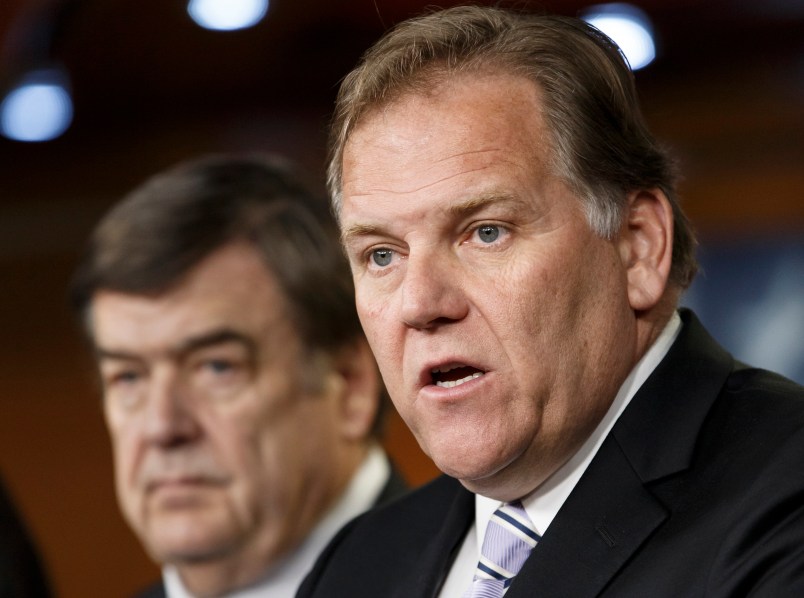Rep. Mike Rogers (R-MI), chairman of the House Intelligence Committee, on Sunday slammed the Obama administration’s decision to negotiate for the release of Sgt. Bowe Bergdahl without first consulting Congress.
Rogers argued that the White House had other options besides releasing five Guantanamo Bay detainees in exchange for the American prisoner of war, and that the administration acted without notifying Congress because they knew there would be dissenters.
“There are other options. And this was what so angered for those of us who have followed this for years,” he said on ABC’s “This Week.” “The administration has this theory that you’re either with them or you’re for thermonuclear war and there’s not in between. That’s just wrong.”
“And so the reason they avoided Congress, this isn’t about we didn’t get invited to the party, so we shouldn’t have our feelings hurt. It is because we can empower all of the people — diplomats — who disagreed with this decision, intelligence folks who disagreed with this decision, military folks,” he continued.
Rogers said that the prisoner exchange will put Americans abroad at greater risk.
“This is a huge regional and geopolitical problem for the United States moving forward. Hostages are now currency in this war on terror. That’s always dangerous for both diplomats, aide workers, soldiers on the battlefield,” he said.







So, TPM, you didn’t bother to note what those “other options” were? Or if Rogers didn’t offer them, you didn’t think that was an important detail to add?
If you’d watched This Week you’d know the answer, and it is NO.
Boy, he’s sounding more like a whiny babbling idiot every day. I don’t see this helping them in the '14 elections–so clearly the infants in the room.
Translation: “We didn’t get a chance to be obstreperous and intractable and throw a monkey wrench into the exchange deal with manufactured controversy and fauxtrage.”
I think that if you are not with the president then you are with the “Evil-Doers”.
You want gravy on them Freedom Fries?
Go fug yourself you GOTP asshole.